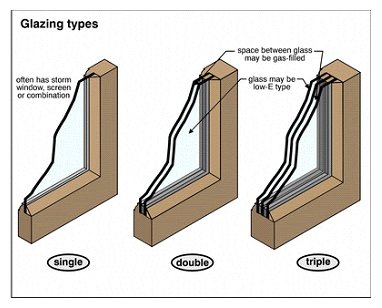What Does 'Glazing' Mean? Decoding The Viral Slang For Excessive Praise
The internet is a constantly evolving linguistic landscape, where new words and phrases pop up faster than you can say "rizz." One such term that has taken social media by storm, particularly among younger generations, is "glazing." If you've heard your kids or younger friends use it and found yourself scratching your head, wondering if it has anything to do with doughnuts or windows, you're not alone. Rest assured, we're not talking about culinary arts or home improvements here. In the realm of internet slang, "glazing" carries a very specific, often critical, meaning.
Unveiling the Meaning of 'Glazing' in Slang
So, what exactly does "glazing" mean? At its core, the definition of "glazing" is to over-compliment someone or something, usually a celebrity or influencer that the glazer is seemingly obsessed with. It's a term that encapsulates the act of showering someone with excessive praise, often to the point where it becomes annoying, unwarranted, or even cringeworthy. Think of it as an over-the-top display of adoration that goes beyond genuine appreciation.
In layman's terms, "glazing" basically means sucking up to someone. Have you ever thought you could impress the socks off someone just by giving them a million compliments? If so, you might have been engaging in what modern internet users now call "glazing." It’s when you gas up and excessively compliment someone to the point where it’s just cringe and annoying. This isn't about giving a well-deserved compliment; it's about an exaggerated, almost fawning, level of praise.
Key Characteristics of Glazing
- Excessive Praise: The most defining feature is the sheer volume and intensity of compliments. It's not one or two kind words, but a relentless barrage of positive affirmations.
- Often Unwarranted: The praise often feels disproportionate to the actual achievement or quality being lauded. It can be directed at mundane actions or things that don't necessarily warrant such effusive praise.
- Perceived Insincerity: Because of its excessiveness, glazing can come across as insincere, even if the "glazer" genuinely admires the person. It loses its impact and can be seen as an attempt to curry favor.
- Annoying or Cringeworthy: For observers, and sometimes even the recipient, glazing can be irritating or uncomfortable to witness. It often evokes a feeling of secondhand embarrassment.
- Obsessive Undertones: The term often implies that the glazer is seemingly obsessed with the person they are praising, particularly if it's a public figure or influencer.
The Origin Story: Where Did 'Glazing' Come From?
"Glazing" is a popular internet slang term that originated in the 2020s, with its roots firmly planted around 2022. Like many viral slang terms, it didn't just appear out of nowhere. It initially gained traction in the dynamic and fast-paced environments of online gaming communities and streaming platforms, specifically Twitch stream chats. From there, it quickly trickled over into TikTok comments and other social media platforms, becoming a ubiquitous part of online discourse.
The rapid spread of such terms highlights how quickly language evolves in the digital age, with new expressions emerging from specific online subcultures and then permeating mainstream internet communication. If you hear your kid use it, they are most likely saying someone is offering too much excessive praise, a clear sign that the term has moved beyond its niche origins.
Glazing vs. Genuine Compliments: Knowing the Difference
It's important to distinguish "glazing" from genuine, heartfelt compliments. A sincere compliment is specific, earned, and delivered with genuine appreciation. It builds someone up without being overbearing. Glazing, on the other hand, often feels generic, over-the-top, and driven by an agenda, whether conscious or subconscious.
While the term can be playful, some wonder if it signals something deeper. Teens are using the slang term 'glazing' to criticize excessive praise, bias, or even basic kindness. This last part is particularly interesting, suggesting that in some contexts, the term might even be used to dismiss any form of positive feedback if it's perceived as overly enthusiastic or potentially manipulative.
Why Do People 'Glaze'?
The motivations behind glazing can be varied, though they often stem from a desire for recognition or connection:
- Seeking Attention: Many "glazers" hope to get noticed by the celebrity or influencer they are praising. In a crowded online space, excessive praise might seem like a way to stand out.
- Currying Favor: Some might be trying to "suck up" in hopes of gaining a follow, a shout-out, or some other form of acknowledgment from the person they admire.
- Genuine (But Misguided) Adoration: In some cases, the glazer might genuinely be obsessed with the person and simply not know how to express their admiration in a more balanced way.
- Fitting In: Within certain fan communities, excessive praise might be seen as a way to show loyalty or fit in with other ardent supporters.
The Impact of Glazing
Glazing has several implications, both for the "glazer" and the "glazed":
- For the Glazer: While they might seek attention, excessive glazing can often have the opposite effect. It can make the glazer seem insincere, desperate, or even annoying to others. Their comments might be dismissed or even mocked.
- For the Glazed: For public figures, constant glazing can be overwhelming and even uncomfortable. It can make genuine compliments harder to discern and might foster an environment of insincere flattery rather than constructive feedback.
- For Observers: As mentioned, witnessing glazing can be "cringe." It can also erode the authenticity of online interactions, making it harder to distinguish genuine appreciation from performative praise.
How to Spot 'Glazing' in the Wild
Spotting glazing isn't too difficult once you know what to look for. Keep an eye out for comments that are:
- Repetitive: The same compliments are repeated over and over.
- Over-the-top: The language used is extremely hyperbolic, even for minor achievements.
- Generic: The praise lacks specific details about what is being complimented.
- Disproportionate: The level of praise doesn't match the context or the effort involved.
- Unsolicited and Constant: The glazer seems to be constantly showering the person with praise, regardless of whether it's invited or appropriate.
For example, if an influencer posts a simple picture of their coffee, and someone comments, "OMG, you are literally the most perfect human being to ever exist, your taste is impeccable, you inspire me every single day, I love you so much!" – that's a classic case of glazing.
Navigating the World of 'Glazing'
As internet communication continues to evolve, understanding terms like "glazing" becomes increasingly important for navigating online spaces effectively. For content creators, recognizing glazing can help them foster more authentic communities. For viewers, it encourages critical thinking about the comments they see and the motivations behind them. And for parents, knowing what their kids mean when they use terms like "glazing" can bridge communication gaps and offer insights into their online world.
Glazing, dear reader, is the modern internet's euphemistic phrase for the excessively ardent—and frankly embarrassing—practice of publicly and exaggeratedly lavishing praise or affection upon someone. It's a testament to how quickly language adapts to describe new social phenomena, particularly in the fast-paced, often performative, environment of social media.
In summary, "glazing" is a contemporary internet slang term, originating around 2022, primarily used to describe the act of excessively complimenting or praising someone, often a celebrity or influencer, to an annoying or cringeworthy degree. It's akin to "sucking up" and signifies an over-the-top display of adoration that goes beyond genuine appreciation, frequently observed in online comments on platforms like Twitch and TikTok. While sometimes used playfully, it often serves as a critique of unwarranted or insincere flattery, highlighting the evolving dynamics of online fan culture and communication.

Glazing

What Does "Glazing" Mean? TikTok Slang Explained

What are the types of Structural Glazing systems? Glazing Types